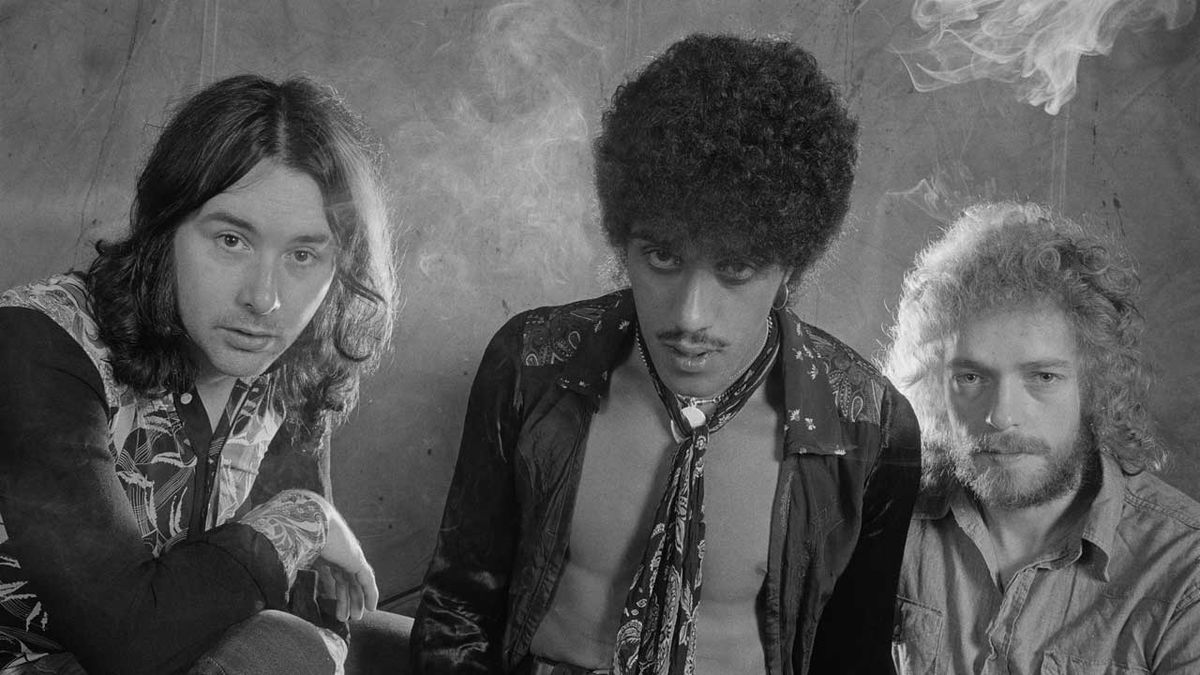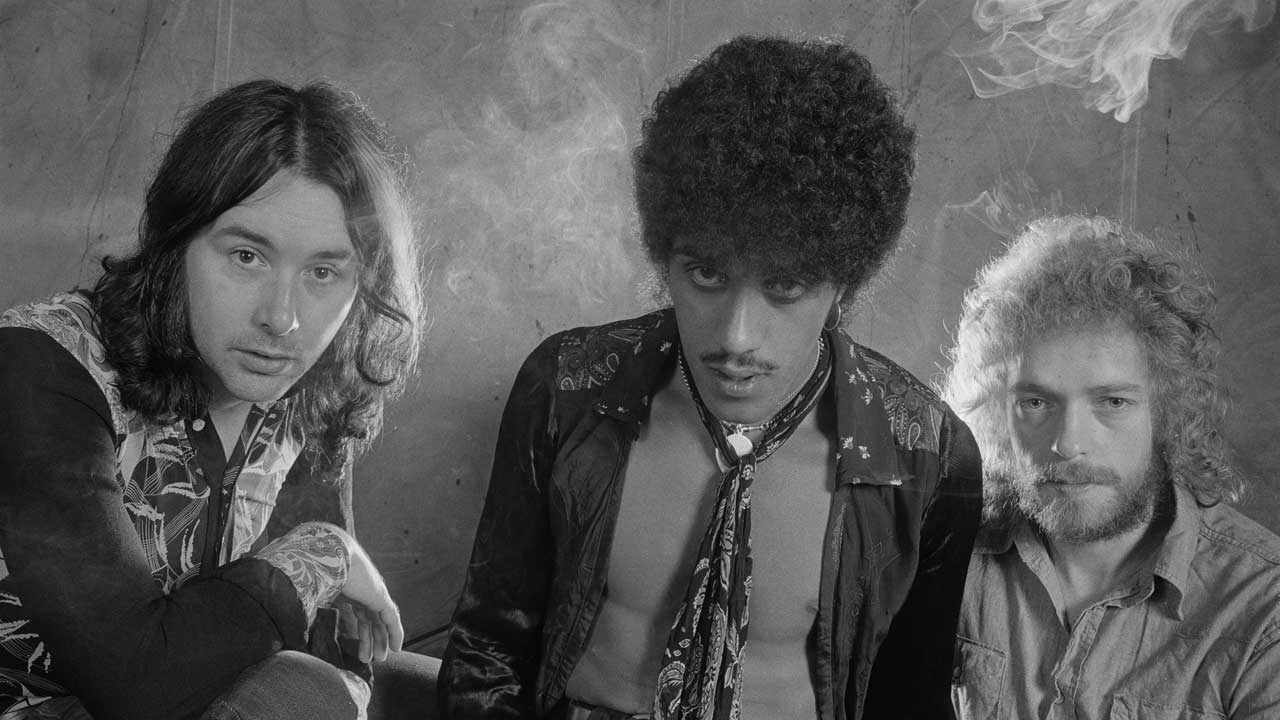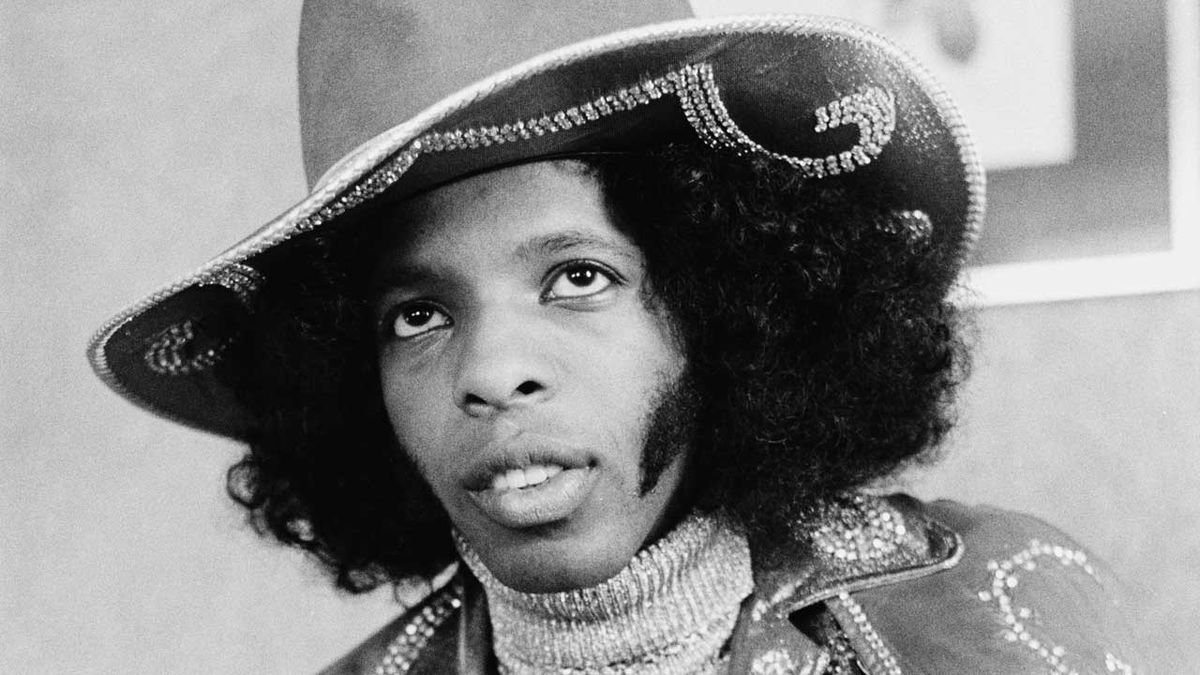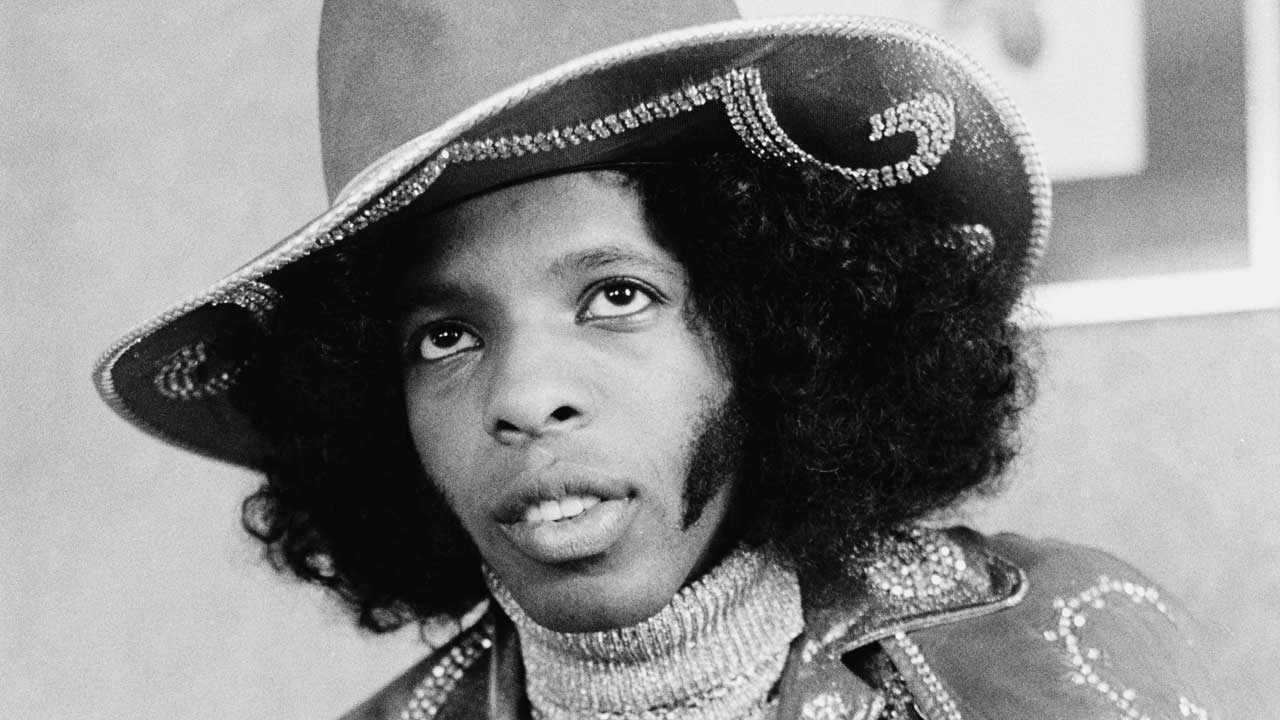
Feature Photo: Epic, Public domain, via Wikimedia Commons
When brothers Pat and Lolly Vegas formed their groundbreaking Native American rock band in Los Angeles during 1969, they forever changed the landscape of indigenous music in popular culture. Redbone is an American rock band formed in Los Angeles, California, in 1969 by brothers Pat and Lolly Vegas. All members during their commercial peak and success were of Mexican American and Native American heritage, which was heavily reflected in their songs, stage regalia, and album art. The band released seven studio albums between 1970 and 1977, achieving their greatest commercial success with the gold-certified single “Come and Get Your Love” which reached number 5 on the Billboard Hot 100 in 1974. They reached the Top 5 on the US Billboard Hot 100 chart in 1974 with their hit single, “Come and Get Your Love”. The single went certified Gold selling over a million copies. Following various lineup changes and the eventual departure of core members, the band disbanded in the late 1970s but continued touring sporadically through the decades.
The word “redbone” is a Louisiana term for a mixed-race person, which the band adopted to signify their mixed ancestry. The Vasquez-Vegas brothers were of Yaqui, Shoshone, and Mexican heritage. Throughout their career, multiple musicians contributed to the band’s distinctive sound that blended rock, R&B, Cajun, tribal, and Latin influences. The brothers attempted to reform the band’s original lineup in the early 1990s, but their plans were waylaid by Lolly’s illness from a stroke and DePoe’s reluctance to tour. Drummer Rillera became unable to perform due to an aneurysm. Today, Pat Vegas continues as the sole surviving original member, leading various incarnations of the band while preserving their musical legacy.
Pat Vegas
Patrick Vasquez-Vegas (born March 17, 1941) is a Native American musician of Yaqui/Shoshone as well as Mexican descent, vocalist, writer, and producer of Redbone, known for their hit singles “Come and Get Your Love”, “The Witch Queen of New Orleans”, “Maggie”, and “We Were All Wounded at Wounded Knee”. Born in Coalinga, California, Pat has remained the most consistent member throughout Redbone’s entire history, serving as bassist and vocalist from the band’s formation in 1969 until present day. Before Redbone, he performed with his brother Lolly in various incarnations including The Avantis, a surf band that supported the Beach Boys, and recorded under the stage name Vegas to downplay their Latin American heritage.
In 1961, Vegas released a single, “I Wanna Be A Movie Star”. The following year, “That Smile” b/w “The Best Girl in the World” was released on the Unity label. Pat contributed to all Redbone studio albums from their 1970 self-titled debut through 1977’s “Cycles,” playing bass guitar and providing lead and backing vocals. His songwriting contributions were significant throughout the band’s catalog, co-writing many of their biggest hits including “Come and Get Your Love” and the politically charged “We Were All Wounded at Wounded Knee.” Following Redbone’s initial disbanding, Pat continued working in music throughout the 1980s, doing voiceover work for Native American documentaries and maintaining the band’s legacy.
Outside of Redbone, Pat achieved notable success as a session musician and songwriter. Pat Vegas also wrote songs for names like Aretha Franklin amongst others. He worked extensively with Phil Spector, contributing to recordings by major artists including Tina Turner, Sonny & Cher, and James Brown. Pat also appeared as a member of The Shindigs, the house band for the influential television program “Shindig” alongside Leon Russell and Delaney Bramlett. Pat has been the sole consistent member of the band since Lolly’s death in 2010. He continues to tour and record under the Redbone name, ensuring the band’s cultural and musical contributions remain alive for new generations.
Lolly Vegas
Candido Albelando “Lolly” Vasquez-Vegas was born on October 2, 1939, in Los Angeles, California, and served as Redbone’s lead guitarist and co-vocalist from the band’s formation in 1969 until his departure in 1995 due to health issues. Jimi Hendrix was a frequent guest at the Sunset Strip venues and was knocked over by the playing of the Brothers Vegas. Jimi stated that Lolly Vegas was the best guitarist he had ever heard and suggested that they create a band. This endorsement from one of rock’s most legendary guitarists speaks to Lolly’s exceptional musical abilities and his influence on the development of Redbone’s sound.
Lolly played guitar and provided vocals on all of Redbone’s classic albums, including their 1970 self-titled debut, “Potlatch” (1970), “Message from a Drum” (1971), “Already Here” (1972), “Wovoka” (1973), and “Beaded Dreams Through Turquoise Eyes” (1974). His guitar work was characterized by the innovative use of a Leslie rotating speaker effect, which became a signature element of Redbone’s sound. Redbone’s music was characterized by the Leslie rotating speaker effect that Lolly Vegas used for his electric guitar amplifier and a “King Kong” style of drumming developed by drummer Peter DePoe. This technical innovation helped distinguish Redbone from their contemporaries and contributed to their unique swamp-rock style.
Beyond his work with Redbone, Lolly had an extensive career as a session musician and songwriter. Before forming Redbone, Pat and Lolly released an album in October 1965 entitled Pat & Lolly Vegas at the Haunted House (Mercury MG 21059/SR 61059). Of the twelve songs on the album, six were originals by the Vasquez-Vegas brothers which earned them some early success. He appeared in several beach and surfing movies including “It’s a Bikini World” (1967) and performed on “Hollywood A Go Go.” Less than three months later, Lolly Vegas died of lung cancer at his family home in Reseda, California, on March 4, 2010, at age 70. His death marked the end of an era for Redbone, as he had been instrumental in shaping both their musical direction and cultural identity throughout their most successful period.
Tony Bellamy
Tony Bellamy was born Anthony Avila, the 12th september 1946. Tony is a Yaqui Indian who had performed with Dobie Gray, and was a member of Peter and the Wolves (a San Francisco band that evolved into the psychedelic band Moby Grape) during the sixties. He joined Redbone as lead guitarist, pianist, and vocalist in 1969 and remained with the band until 1977, participating in their most commercially successful period. Bellamy’s flamenco guitar background, learned through weekend performances at his family’s restaurant in Santa Ana, California, added a distinctive Latin flavor to Redbone’s sound that complemented their Native American and Cajun influences.
Tony played on virtually all of Redbone’s classic albums during their Epic Records era. He brought this particular sound and wonderfull solos on almost all Redbone albums (except Cycles) His contributions can be heard on “Redbone” (1970), “Potlatch” (1970), “Message from a Drum” (1971), “Already Here” (1972), “Wovoka” (1973), and “Beaded Dreams Through Turquoise Eyes” (1974). His guitar work was essential to hits like “Maggie,” “The Witch Queen of New Orleans,” and their biggest success, “Come and Get Your Love.” The Vegas brothers met guitarist Tony Bellamy, collaborated on the Jim Ford album “Harlan County”. Thereafter the trio hired drummer Pete DePoe and signed band Redbone to Epic Records in 1969.
Before joining Redbone, Tony had already established himself in the music industry through various collaborations. He was recruited by them to accompany them on session work with Odetta, John Lee Hooker, and the Everly Brothers before they founded Redbone with him. After leaving Redbone in 1977, Tony continued working in music and remained connected to the Native American music community. In 1998, Tony Bellamy and Patrick Vasquez performed as Redbone at the First Native American Music Awards held at the Foxwoods Casino in Connecticut. On October 4, 2008, Tony Bellamy and Patrick Vasquez attended the 10th Annual Native American Music Awards at the Seneca Niagara Hotel & Casino in Niagara Falls, New York as special guests to accept Redbone’s induction into the N.A.M.A. Hall of Fame. On December 25, 2009, Tony Bellamy died of liver failure at a hospital in his hometown of Las Vegas, at age 63.
Peter DePoe
Peter DePoe (born August 21, 1943), also known as Last Walking Bear, is a Native American rock musician who was the drummer for the Native American band Redbone. Born in Neah Bay, Washington, DePoe is a citizen of the Confederated Tribes of Siletz Indians of Oregon and a descendant of the Southern Cheyenne and Turtle Mountain Chippewa. He served as Redbone’s original drummer from 1969 to 1972, playing on their first three albums and contributing to the development of their signature sound. PetePoe, born in 1943, is Redbone’s first drummer. He is playing on “Redbone”, “Potlatch” and “Message from a Drum”.
DePoe’s most significant contribution to music was the development of what became known as the “King Kong Beat.” He was credited with developing a style of drumming known as “King Kong”, later copied by other drummers for its versatile and funk-oriented rhythms. This innovative drumming style became a fundamental element of Redbone’s sound and influenced numerous other musicians. And the beats I made up was The King Kong Beat. I was the first drummer that played a 16th note rythm pattern on the high hat and snare drums that was ever recorded by anny other drummer. Tower of Power’s David Garibaldi has credited DePoe with creating one of the most important rhythmic foundations in funk music.
Pete’s involvement with notable musicians began early in his career. He first played with Jimi Hendrix in Seattle’s local taverns as a young man and moved to California and became Redbone’s drummer in 1969. His drumming can be heard on classic Redbone tracks including “Maggie,” “The Witch Queen of New Orleans,” and early versions of what would become “Come and Get Your Love.” The death of DePoe’s father prompted the drummer to quit the band. “He couldn’t stay with us because his family was dependent on him,” Pat told Isaac. After leaving Redbone in 1972, DePoe continued his musical career and has written an autobiography titled “King Kong Pete: Redbone and Beyond,” documenting his experiences with the band and his broader musical journey.
Arturo Perez
Arturo Perez served as Redbone’s drummer for a brief but important period, replacing Peter DePoe in 1972. DePoe was replaced by Arturo Perez on the 1972 album Already Here. Born in 1939, Perez brought his own drumming style to the band during a transitional period following DePoe’s departure due to family obligations. His tenure with Redbone was relatively short, lasting approximately one year, but he made important contributions to the band’s fourth studio album.
Perez’s drumming can be heard on “Already Here” (1972), an album that continued Redbone’s exploration of their distinctive blend of rock, R&B, and Native American musical elements. The 1972 album “Already Here” continued Redbone’s unique fusion of rock, R&B, and Native American music. It may not have achieved the same commercial success as “Message from a Drum,” but it stood as a strong, cohesive project in the band’s discography. While his time with the band was brief, Perez helped maintain continuity during an important period when Redbone was developing the sound that would lead to their biggest commercial success.
Perez departed shortly thereafter, however, and was replaced on the 1974 release Wovoka by Butch Rillera. Little detailed information is available about Perez’s activities before or after his time with Redbone, but his contribution to “Already Here” represents an important chapter in the band’s evolution. The album served as a bridge between the original lineup’s work and the configuration that would achieve their greatest commercial success with “Come and Get Your Love.”
Butch Rillera
Butch Rillera first met Pat and Lolly in the early 60s when he played a surf concert in Fresno, California with a band called the Lively Ones. He became Redbone’s drummer in 1973, replacing Arturo Perez and remaining with the band until 1977. Rillera’s tenure coincided with Redbone’s period of greatest commercial success, as he played on their most successful album “Wovoka” (1973), which contained their biggest hit “Come and Get Your Love.” This is Butch Rillera. I replaced Pete DePoe on drums. I was fortunate to record the Wovoka album that had “Come and Get Your Love.”
Butch brought extensive musical experience to Redbone, having previously worked with several notable acts. Butch and his brothers played on the Righteous Brothers first album called “Right Now” on the Moonglow Record label. The Rillera Brothers played and recorded with the Righteous Brothers throughout the 60s. His family had deep musical roots, with his older brothers Barry and Rick having formed The Rhythm Rockers in Orange County during the 1950s, a band that featured Richard Berry, the writer of “Louie Louie.” Before joining Redbone, Butch had played with various acts including a band called Fatback and White Trash with Jerry LaCroix.
Rillera’s drumming can be heard on “Wovoka” (1973), “Beaded Dreams Through Turquoise Eyes” (1974), and he remained with the band through their final Epic Records release. Tony Bellamy (guitar, piano and vocals) left the band in 1977, with Rillera leaving shortly after. His departure marked the end of Redbone’s classic lineup era. Drummer Rillera became unable to perform due to an aneurysm. Despite health challenges that affected his later career, Rillera’s contributions during Redbone’s peak commercial period were essential to their lasting success and helped establish the rhythmic foundation for their most memorable recordings.
Aloisio Aguiar
Aloisio Aguilar – keyboards, joined the band on their albums Cycles (1977) and Live (1994) Aguiar joined Redbone in 1977 as a keyboardist and percussionist, representing a significant shift in the band’s sound and approach. His addition coincided with Redbone’s transition to RCA Records and their move toward a more disco-influenced musical direction. The latter album marked the recent departures of Bellamy and Rillera, the addition of keyboardist and percussionist Aloisio Aguiar, and the band’s new label, RCA.
Aguiar’s keyboard work was prominently featured on “Cycles” (1977), Redbone’s seventh and final studio album of their initial run. This album is notable for being the only studio album to feature contributions from Aloisio Aguiar and Linda Creed. The album represented a departure from Redbone’s earlier Native American-focused themes, instead embracing longer, disco-styled compositions that reflected the musical trends of the late 1970s. His contributions helped create a more dance-oriented sound that sought to capitalize on the disco era’s popularity.
Beyond his studio work, Aguiar also performed on Redbone’s live album, recorded in 1977 but not released until 1994. Meanwhile the Vegas brothers were still with Far Out. Although recorded in 1977, “Redbone Live”, taped in Corpus Christi and Los Angeles while supporting War, did not emerge until 1994, when it appeared on Jerry Goldstein’s Avenue Records via Rhino. After Redbone’s initial disbanding, Aguiar pursued his own musical projects. Aloiso has produced at least 2 CDs over the last decades. : • Child of the Universe • King of Hearts His work with Redbone represented the band’s final chapter before their extended hiatus, bridging their classic rock era with the changing musical landscape of the late 1970s.
Later Members and Current Lineup
Following the departures of the classic lineup members, various musicians have performed with Redbone under Pat Vegas’ leadership. Raven Hernandez (guitar, vocals and songwriter) joined Redbone in 1996 to replace Lolly Vegas after he suffered a stroke that left him unable to tour with the band. Hernandez has served as the band’s primary guitarist and vocalist alongside Pat Vegas, helping to maintain Redbone’s touring presence and musical legacy. Members have included Lolly Vegas, Pat Vegas (bass, vocals), Garrett Saracho, Joe Gonzalez, Raven Hernandez, Robert Lame Bull McDonald, Tony Bellamy, Peter DePoe, Arturo Perez, George Spanos, Butch Rillera, Aloisio Aguiar, Eddie Summers, Fernando Verdeialez (guitar, vocals), Vini Mars (guitar, vocals), Carlos PLerez (guitar, vocals), Lee Wilson (drums, vocals).
The current incarnation of Redbone continues to perform, primarily on the Native American casino circuit and at cultural events. Redbone headlined the Inaugural Indigenous Peoples Day event along with Pat Vegas’s son PJ Vegas, daughter Frankie Vegas, and The Black Eyed Peas at Los Angeles City Hall on October 8, 2018, Grand Park. Pat’s children have also become involved in preserving and continuing their father’s musical legacy, ensuring that Redbone’s cultural contributions remain relevant for contemporary audiences. The band was featured in the 2017 documentary “Rumble: The Indians Who Rocked the World,” which highlighted their significance in Native American rock music history.
Pat Vegas continues to lead Redbone as the sole surviving original member, maintaining the band’s commitment to representing Native American culture through music. While the classic lineup can never be replicated, the current iteration of Redbone serves an important role in preserving the band’s legacy and introducing their groundbreaking music to new generations. Their induction into the Native American Music Association Hall of Fame in 2008 and recognition by the Smithsonian Museum of the American Indian in 2013 underscore their lasting impact on both popular music and Native American cultural representation.
Check out more Redbone articles on ClassicRockHistory.com Just click on any of the links below……
Read More: Classic Rock Bands List And Directory
Complete List Of Redbone Band Members article published on ClassicRockHistory.com© 2025






























